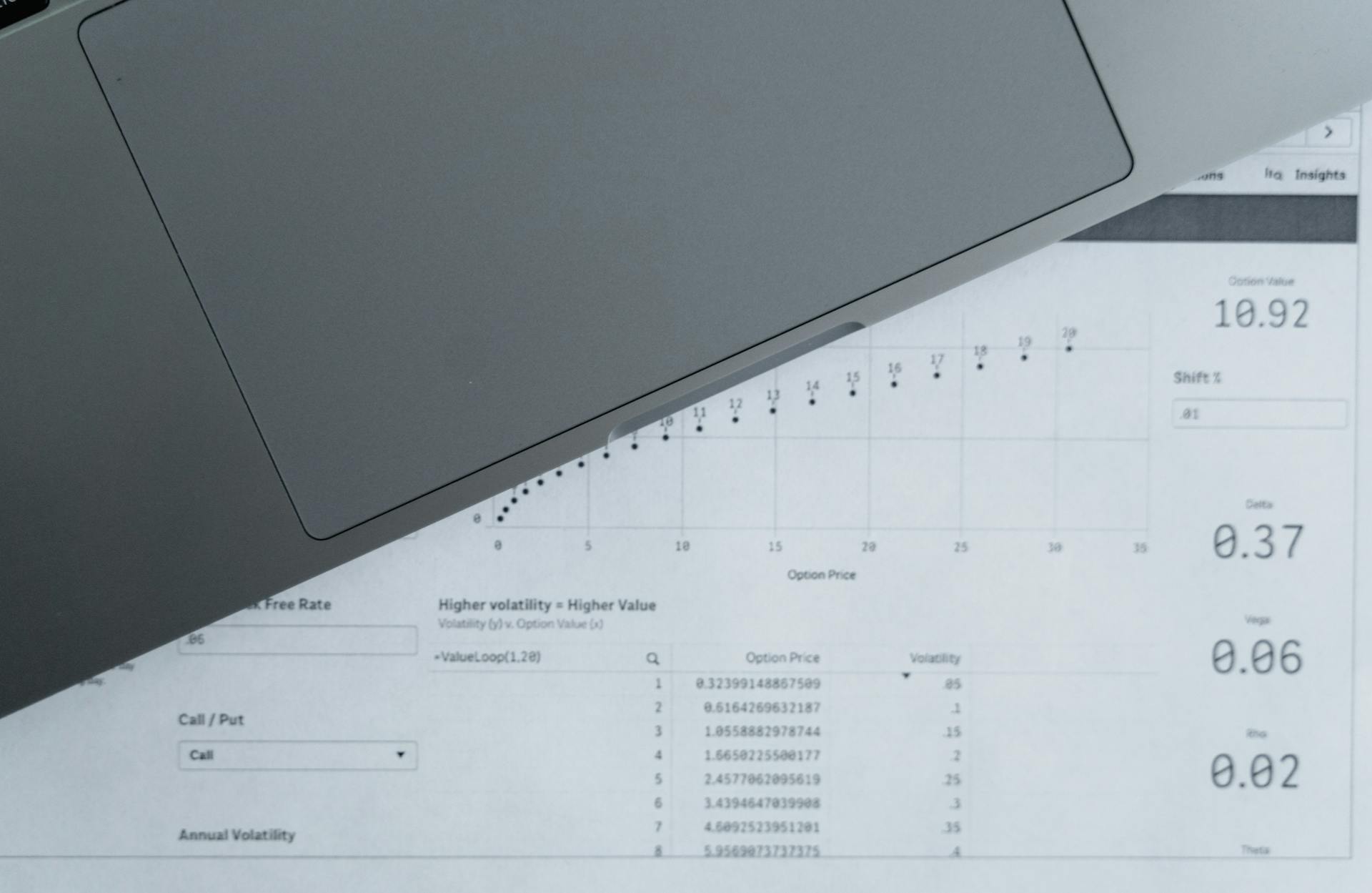
A credit card can stay on your credit report for up to 10 years from the date of the last activity on the account.
This is because credit reporting agencies, like Equifax, Experian, and TransUnion, are required to keep a record of all accounts, including credit cards, for a certain period.
Typically, a credit card account will remain on your credit report for 7 years from the date of the first delinquency, which is the first time you missed a payment.
However, if the account is settled or paid in full, it can be removed from your credit report sooner, usually within 5-7 years.
Credit Report Impact
Closed accounts can stick around for as long as 10 years, affecting your credit scores as long as they persist.
Closing an account can temporarily increase your credit utilization rate, which counts for 30% of your credit score.
Your credit utilization rate can be affected even if the account is in good standing, making it essential to keep this in mind when deciding to close an account.
The age of your credit history accounts for 15% of your FICO credit score, and closing one of your oldest cards could lose you several years from your history as an active and responsible borrower.
A mix of revolving credit, such as credit cards, and installment credit, such as personal loans, is preferred by lenders, and closing one type might affect your mix of credit, which determines 10% of a FICO score.
Your credit score should rebound in a few months as long as your payments continue on time, providing some relief for those who close an account.
Hard Inquiries on Credit Report
Hard inquiries can have a negative impact on your credit score, and it's essential to understand how they work. Hard inquiries stay on your credit report for up to two years.
You can't avoid hard inquiries entirely, but you can minimize their impact. If you see a hard inquiry you didn't authorize on your credit report, you can dispute it with the credit bureau.
Most credit scoring models only consider the previous 12 months of hard inquiries when calculating your score. This means that older hard inquiries have less of an impact on your credit score over time.
Late Payments on Credit Report
Late payments can have a significant impact on your credit score, and it's essential to understand how they affect your credit report. They remain on your credit report for seven years from the original date of the delinquency.
A single late payment can cause a dip in your credit score, potentially up to 180 points. However, the impact lessens over time, especially if it's a one-time mistake and you make on-time payments thereafter.
If you miss your due date but make a payment before it's 30 days past due, you're in luck - creditors don't report a late payment to the credit bureaus until it's 30 days past due. However, you may still incur a late fee.
Here's a breakdown of what to expect based on how late your payment is:
Late payments appear on your credit report under the account that you haven't paid, so you'll see a note in that section of your report saying you're 30, 60, or 90 days late. This can hurt your credit score, but the impact lessens over time.
Closed Accounts
Closed accounts can stay on your credit report for a significant amount of time, and their impact on your credit score can vary depending on how you managed the account when it was open.
A closed account on your credit report can be a positive reflection of your credit history, especially if the account was well-managed and in good standing at the time it was closed. This can help your credit score, and the account will stay on your credit report for up to 10 years.
However, if you made late payments on the account or it was referred to a debt collector, the negative information can lower your credit score, and the account will stay on your credit report for 7 years.
If you want to remove a closed account from your credit report, it's not easy, but you can try sending a letter to both your lender and the credit reporting agency if you believe the information is inaccurate. You can also consider pursuing a "goodwill" deletion, but the lender is under no obligation to do so.

Closed accounts can affect your credit in two ways: positively or negatively. If you made all your payments on time, closed accounts can remain on your credit report for up to 10 years and benefit your credit scores. On the other hand, if you made late payments or the lender closed the account due to non-payment, those negative entries will stay on your credit report for 7 years and have a negative effect on your credit scores.
Here's a breakdown of how closed accounts can affect your credit:
- Closed accounts with no late payments: 10 years
- Closed accounts with missed or late payments: 7 years
Keep in mind that choosing to close a credit card account with a history of steady payments does no direct harm to your credit scores, but closures like this could cause indirect harm in a few ways.
Credit Report Removal
You can try to remove a closed account from your credit report, but it's not easy. If you find inaccurate information, you can send a letter to both your lender and the credit reporting agency, and they may remove it.

The Consumer Financial Protection Bureau provides sample letters to help you with this process. You can also consider a "goodwill" deletion, where you ask the creditor to remove the account since it's no longer open.
However, the lender is under no obligation to do so, and credit bureaus aren't obligated to remove closed accounts. This means you may not be able to get the account completely removed from your credit report.
But don't worry, closed accounts can still be beneficial to your credit score if you made all your payments on time. If you did, they can remain on your credit report for up to 10 years from the date they were closed.
Here's a summary of how long closed accounts stay on your credit report:
- Closed accounts with no late payments: 10 years
- Closed accounts with missed or late payments: 7 years
- Accounts that were delinquent when closed: 7 years from the date they first became past due
Keep in mind that choosing to close a credit card account with a history of steady payments does no direct harm to your credit scores.
Credit Report Management

Managing your credit report is crucial to maintaining a healthy credit history. You can keep accounts open to extend your payment history, but avoid closing them for inactivity to prevent cancellation.
To ensure your credit reports are accurate, check them regularly and dispute any entries that are incorrect. This will guarantee that your reports are a true reflection of your payment history.
Here's a quick rundown of how long accounts stay on your credit report:
- Accounts closed in good standing stay on your report for 10 years.
- Accounts with late payments stay on your report for up to 10 years, or until the positive information outweighs the negative.
Age Reduction
Closed accounts can still impact your credit report for a long time, which is why lenders are interested in them as part of your credit history.
Information from closed accounts may help lenders get a deeper insight into your past payment history. This is because credit scoring systems tend to favor borrowers with years of experience managing debt and repayment.
A longer credit history tends to result in higher credit scores, all other considerations being equal. Credit scoring software considers the ages of all the accounts on your credit report, so closing an account will eventually reduce its age.
You'll no longer get credit for the age of that account after it falls off your credit reports, but by then you'll have seven to 10 more years of credit history under your belt. This means the score impact probably won't be severe, but it's still something to consider.
Improving Your History

Keeping accounts open is key to building a strong credit history. This means avoiding closures voluntarily, especially if you're new to personal credit or rebuilding after prior missteps.
Closing accounts for inactivity is a common mistake to avoid. Letting your credit cards go inactive for extended periods can prompt the issuers to cancel them, which can harm your credit score.
Paying all your bills on time is the single most important thing you can do to build up your credit history and scores. Use any method that assures you don't make a late payment, including calendar reminders, auto-payments, smartphone alarms, or a string around your finger.
To ensure your credit reports are accurate, check them regularly and dispute any entries that are inaccurate. You have the right to do so, and it's essential to ensure your reports are true reflections of your payment history.
Here are some tips to keep in mind:
- Use your credit card accounts wisely by avoiding high balances and making all payments on time.
- Set up an auto-payment through your checking account to pay the card bill each month to keep the card active with minimal hassle.
If you've never been late or missed a payment, your account will stay on your credit report for 10 years and can have a positive effect on your credit scores the entire time.
Frequently Asked Questions
What happens after 7 years of not paying credit cards?
After 7 years, unpaid credit card debt is typically removed from your credit report, but it's essential to understand the 180-day waiting period and how it affects your credit score
Is credit card debt forgiven after 10 years?
Negative credit card debt typically falls off your credit report after 7 years, but the debt itself may still be collectible. However, after 7 years, it should no longer impact your credit score
Sources
- https://www.cbsnews.com/news/how-long-does-credit-card-debt-forgiveness-stay-on-your-credit-report/
- https://www.discover.com/credit-cards/card-smarts/how-long-hard-inquiries-last-credit-report/
- https://www.cnbc.com/select/how-long-late-payments-stay-on-credit-report/
- https://www.americanexpress.com/en-us/credit-cards/credit-intel/how-long-do-closed-accounts-stay-on-your-credit-report/
- https://www.experian.com/blogs/ask-experian/when-are-closed-accounts-deleted/
Featured Images: pexels.com


